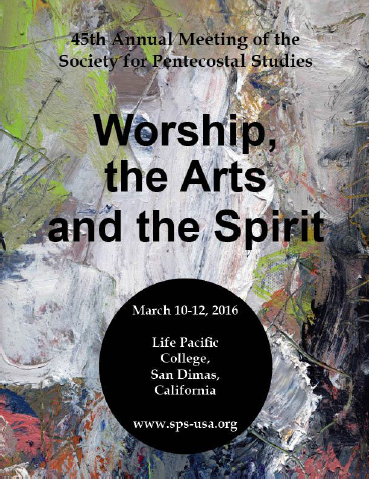NOTE: These issues are restricted to current ORU community members. Please log in with your Single Sign-On credentials to download. Questions? Contact digitalshowcase@oru.edu.
COinS
Jan 1st, 12:00 AM
“Israel’s Story and Our Story: Hearing the Whole Story from Psalms 105 and 106”






Comments
I want to preface my paper with a brief testimony that I hope will benefit especially the younger members of the audience. My academic interest in the Psalms began in 1993, when I was called upon by Lee University to teach a course on the book of Psalms. As part of my preparation for the course, I read Claus Westermann’s work on the Psalms,1 and reading Westermann with a Pentecostal ear led me to conclude that more work was needed to explicate the passionate emotive content of the Psalms, especially as it might intersect with and inform Pentecostal spirituality and worship. At that time, I developed the outline for a book on the Psalms and wrote it in the front of my Bible.
My idea for writing on the Psalms was put on hold when I began to teach at the seminary, and I found myself working night and day at four full-time occupations: pastoring a church, teaching at the seminary, writing a doctoral thesis, and raising a family. Reflecting back on my choices, though, I cannot explain why I never considered the Psalms as a doctoral project. All I can say is that there is a time and a season for all things, and apparently, 1993 was not the time for me to write on the Psalms.
My interest in the Psalms was renewed in 2010, when I re-read Walter Brueggemann’s article, “Bounded by Obedience and Praise,” in which he argued that Psalm 1 calls for dutiful and obedient adherence to the demands of the Torah, a view that I had myself taught and preached. As I re-read the psalm, however, a word in verse two leaped out at me – the word was “delight”. The verse reads, “His delight is in the Torah of Yahweh, and in his Torah he meditates day and night.” Based upon my hearing of verse 2, I wrote an article, in which I argued that instead of a duty, the Torah is a delight; instead of a demand for obedience, Psalm 1 is an invitation to a life of blessing.
I followed up that first article with studies on Psalms 63, 100, 103, and 107.3 What I had intended as a one-off article on the Psalms turned into a series of studies on the affective dimension of the Psalms. My long buried plan for a book has now been revived, and I am writing with the book in mind, attempting to include a variety of psalm types. Therefore, I chose to write on Psalms 105 and 106 as representatives of the psalms of historical recital.